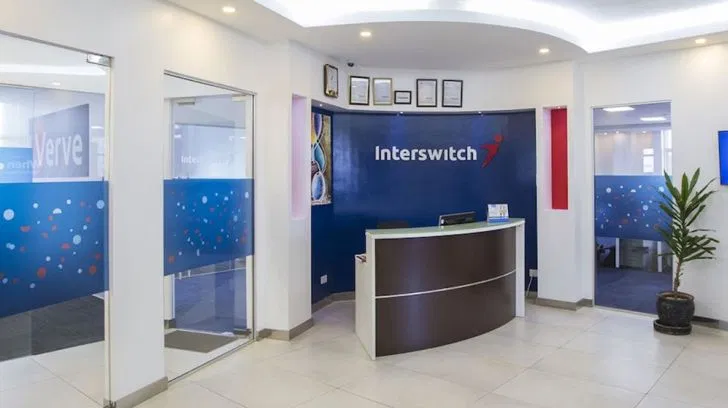
I personally characterize firms into two broad categories; philanthropies (firms that create value, but have failed to effectively extract value), and businesses (firms that have been able to both create and extract value). Ideally most technology firms will start up as philanthropies, and as economies of scale begin to set in, eventually migrate to become businesses. However, a good number of technology firms fail to perform that migration, and keep on burning venture capital to nowhere until they eventually get sold at a discount (Konga), perform an IPO (Jumia, Palanthir) or eventually close down (Efritin, Quibi).
In Africa, this trend has gotten out of hand. Nigeria (Africa’s biggest economy) has a startup failure rate of 61% – in other words, 6 in every 10 Nigerian startups fail.
The major reason for this trend is usually not the inability to create value, but the inability to effectively extract value. Designing Data Double Plays may just be the way to help firms solve this conundrum.
Register for Tekedia Mini-MBA edition 18 (Sep 15 – Dec 6, 2025) today for early bird discounts. Do annual for access to Blucera.com.
Tekedia AI in Business Masterclass opens registrations.
Join Tekedia Capital Syndicate and co-invest in great global startups.
Register for Tekedia AI Lab: From Technical Design to Deployment.
This piece is the second part in a series on designing for data double plays I’m sharing. If you missed the first article, you can follow this link to it.
Law and Order
One of the most important traits of an entrepreneur is optimism. Optimism isn’t ignoring the facts – optimism is seeing the facts, looking for the opportunities inherent in them, and looking for ways to exploit those loopholes to both create and extract value.
In the first part of this series, I had more than one comment where the readers shared how negative government policies are having an adverse effect on both the entrepreneurial culture, and the entrepreneurial ecosystem in Nigeria.
As much as those concerns are true (and they are), I also like to see the light at the end of the tunnel that most entrepreneurs can exploit – Ignorance.
As much as the government isn’t making enough tangible policies that support the scale up of technology startups in Nigeria, the government is not tech-savvy, and therefore business models that exploit governmental ignorance at very little damage to the customer will find it very easy to scale in Nigeria.
European laws like GDPR (General Data Protection Regulation), will probably never happen in Nigeria because of the governments relative ignorance to the true monetary value of data. Indomie acquired Dangote Noodles in 2017 for an undisclosed fee to strengthen its position in the noodles segment. As at early 2019, Indomie accounted for more than 70% of the Nigerian noodles market. Is this anti-competitive behavior? Yes. Did the government do anything about it? No.
When P&G tried to acquire Billie’s last year (2020), the FTC (Federal Trade Commission) blocked the acquisition due to antitrust concerns.
In Nigeria, the government doesn’t regulate monopolies. Our monopolists drive Lamborghini’s, live in Banana Island, and rent private jets. They also ‘spray’ money, and ‘make it rain’ on the officials who are supposed to be regulating their businesses.
It is very difficult to regulate the man who ‘sowed’ a BMW M5 into your life last week. Very difficult.
Although banning businesses like Gokada that were solving massive frictions in the transportation space was likely uncalled for (we probably can’t quantify the mental damage Lagos traffic is doing to people), our government still remains largely ignorant of the power of technology, and what it needs to regulate.
The strategy for any entrepreneur is very simple and clear – find ways and strategies to exploit governmental ignorance at scale.

Data Double Plays
Like I shared in my last piece – a Data Double Play is a strategy that allows businesses to take advantage, create monetary value and design new products from the data they generate from their business operations.
Data Double Plays allow businesses sell the perception of God (the partial ability to be omnipresent and omniscient). A Data Double Play allows businesses to create new product lineups from the data they generate that can now be scaled to users/businesses to allow them have a clearer view of the world they operate or innovate in.
Facebook ads are one of the most prominent examples of a Data Double Play. Unlike traditional advertising (TV commercials and Radio ads) where people have less data and information about how users interact with their ads, Facebook ads allow you to see in real time how people on their 2 billion user platform are interacting with your advert in real time.
Facebook ads turns you into a kind of digital marketing god that has a very clear overview of how an advert is performing, what geographical locations are making the most impressions, what gender is interacting the most, and what demography is finding this advert most meaningful.
In most cases, you get none of that information through traditional television advertising. In traditional television advertising, you push the African Magic ad, cross your fingers, and hope those ads will increase sales. Hope is not a strategy.
Nobody wants to walk in darkness; everyone wants to be a god.
Operating Systems
The most powerful businesses are operating systems. It is very smart to have a platform strategy at the onset of your business that helps you build a system that doesn’t just sell a product, but helps others sell theirs.
The reasoning behind platforms is simple – everybody may not buy or use your product, but as long as the majority of that product/service is sold through your platform – whether it is your product or not, you will get a cut.
The Apple store is a US$15 billion operating profits a year generating business, and the platform and operating system for all mobile applications on IOS. The Federal Republic of Apple’s strategy allows them constitutionally take a 30% cut on almost all in app purchases that occur on their platform. In other words – Apple through its country (the Apple store) has turned itself into a government that takes a 30% tax from all its citizens (applications).

Apple Music competes with Spotify in the music streaming segment. Spotify exists (and is a citizen) on the Apple store.
Almost every Nigerian knows that competing with the government (in most cases) is not a very smart thing to do. Spotify has taken Apple to court on multiple occasions for anti-competitive behavior. Apple is the government. Apple doesn’t care.
Apple Music makes money from those who patronize its services, and a 30% cut from those who do not. It’s literally a win/win situation for Apple.
Being an operating system makes it extremely easy for businesses to build Data Double Plays because of the data they have inherent access to. This data gives them a clear picture of what both them and their competition are up to. They will usually have to structure and process that data into meaningful formats that can be sold as products and/or services to end users.
The same way crude oil has very little value if it isn’t processed, raw data has very little value unless it is processed and structured properly.
The Switch’s Data Double Play
I shared in my last article that I was going to ‘switch’ and share a practical example of an African business and how it can design its own Data Double Play. If you didn’t get what I meant by ‘switch’, it’s safe to say you don’t actively follow or work at Interswitch.
Our practical example today is none other than Interswitch.
Interswitch is a leading financial technology firm operating in Africa. Interswitch pioneered the switching technology that allows banks, merchants and customer’s seamlessly connect and integrate to make transactions happen.
Interswitch is one of the few firms largely responsible for the digitization of finance in Nigeria, and in Africa by extension.
How Interswitch designs its DDP
A firm’s ability to design a Data Double Play is really dependent on two things; one is how seriously those in charge of doing so take this article, and two is the context of data available to the firm. Not all data can be used for this process, as the design of a DDP is highly dependent on the context of data being extracted.
To some degree, Interswitch is arguably the operating system for digital financial transactions in Nigeria. Depending on the context of data that Interswitch gathers, it should have info on where transactions are made (location), how much is made (amount), and the type of retailer making these transactions (kind).
Through its Verve cards, and its partnership with VISA, it also has more detailed information on the nature of transactions being made. Although there are no serious laws forbidding the use of data in this context – best practices suggest only generalized data should be utilized, and nothing specific that can tie transactions directly to individuals.
Interswitch can use this data to create a data sight product (I may need to give it a better name) or service that allows businesses gain a clearer view of the financial environment of specific locations.
What metrics do businesses utilize before expanding to certain physical locations? Interswitch’s data product could help you make a more data informed decision by analyzing the spending patterns and trends in that geographic location and presenting this information to the user/business to help them know; how financially viable the people in that environment may be? The amount of working class people in that environment (whether most transactions occur early in the morning or in the evenings and less in the afternoons), whether people are more likely to use ATMs or POS systems (an indicator of many things if analyzed properly) and what kind of retailers (no need to specify the business) are enjoying rapid amounts of patronage. ATM and POS withdrawals are very key data points that point to a lot of things.
With this information, a business expanding to a new physical location can have a clearer oversight of what to expect based on data, rather than just entering an environment based on guesswork (and this area looks very busy, or is residential).
Value Extraction (Data as a Service)
How does Interswitch extract value with this product?
It is highly unlikely that I recommend a one off payment for a product of this magnitude. I would recommend a Data as a service model. Interswitch’s data product doesn’t just help you move into a new environment, it also helps you understand in real time the bigger picture of what is going on in your environment.
Businesses can make informed marketing and advertising decisions based on real time data available to them.
The product is scaled as a largely B2B subscription business where businesses pay a monthly (or yearly) subscription fee to access those analyzed data points.
Different subscription plans exist based on how much information/data and analysis the business may need.

Who already does this?
Goldman Sachs.
Goldman Sachs has a data as a service analytics product called Marquee that helps its investors make sense of the deep market data sets it has access to.
Marquee gives investors top-shelf state of the art access to data and analysis from one of the most prominent firms on Wall Street.
Marquee is a delivered as a data as a service product, and investors are largely charged a subscription fee to access the product.
Conclusion
One source of value extraction may not be enough to extract value from the Nigerian, and by extension African space. Embracing double plays, especially data double plays may just be the key to unlocking and extracting meaningful value in this space.
Interswitch is well positioned to unlock and design a Data Double Play model that allows it to move beyond just switching transactions for its users and being just a financial services player to providing a data informed bird’s eye view to firms of the business landscape they innovate in.
Inspired by the Holy Spirit
P.S: if you found this piece meaningful, please like, share it, or leave a comment.
P.S2: to talk more about data double plays, or for consultation services, you can send me a message to the email below.



